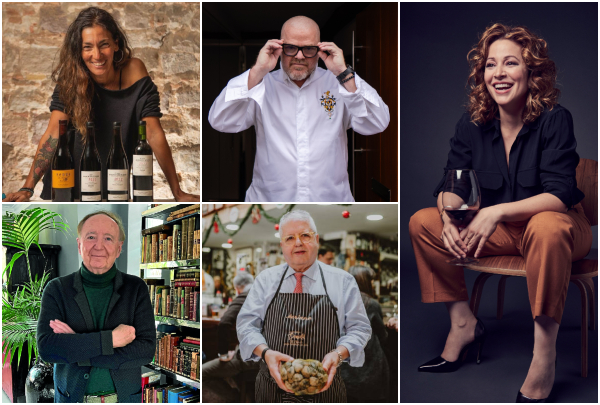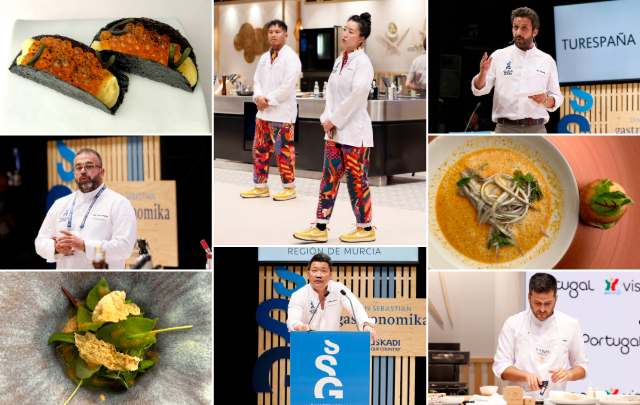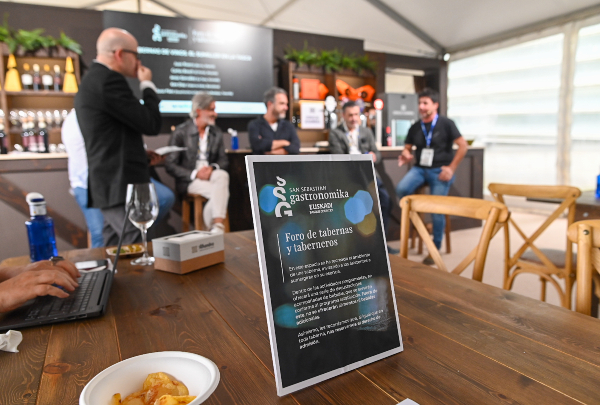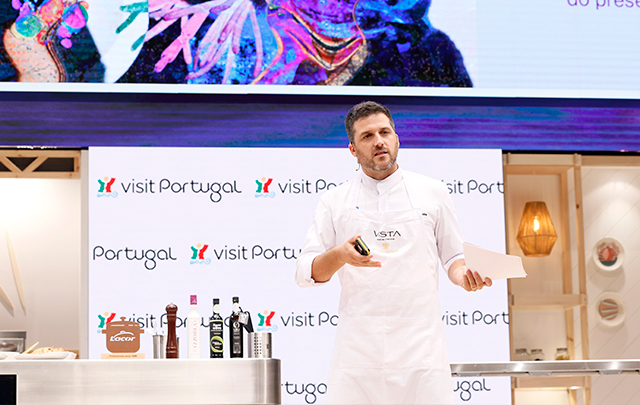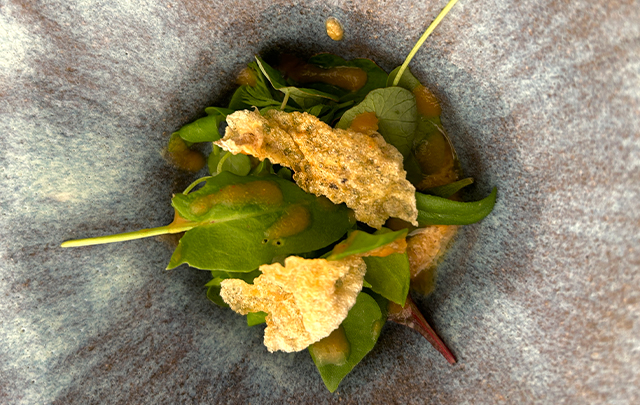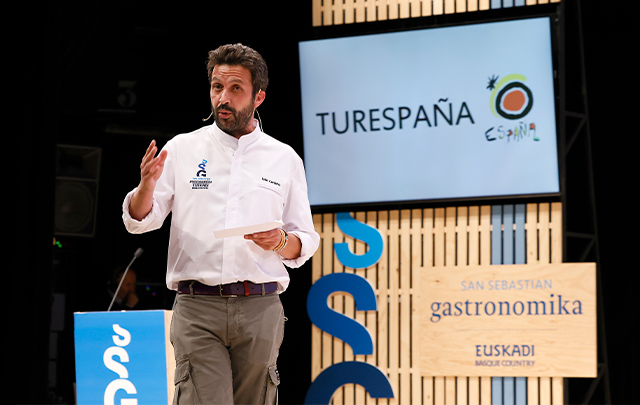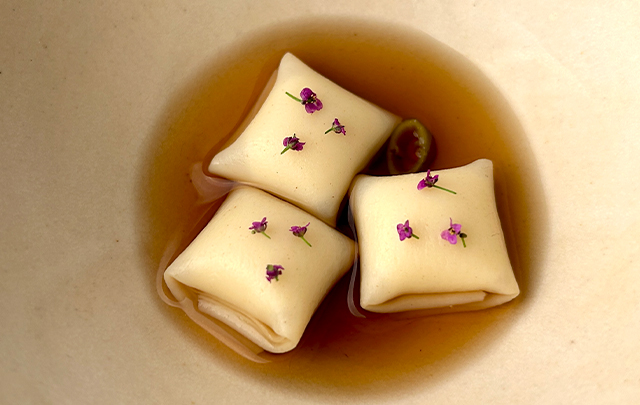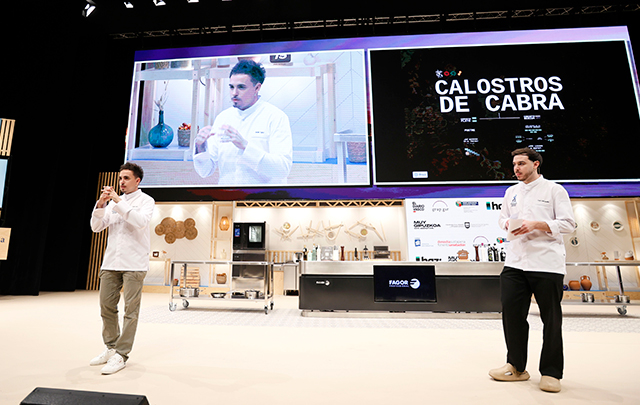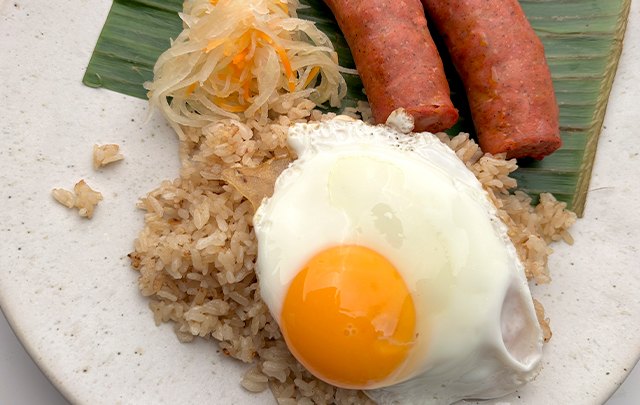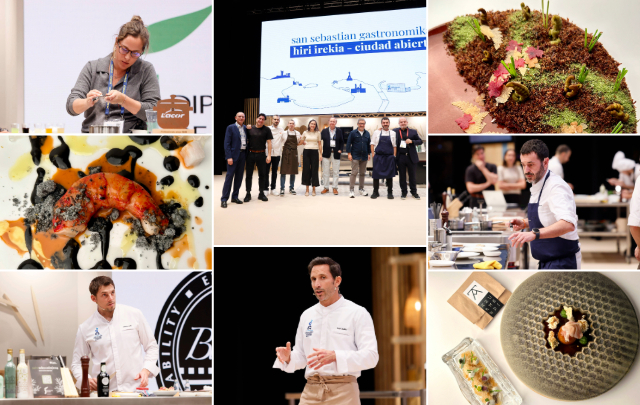News
Andrew Wong: 'There is no such thing as Chinese food'.
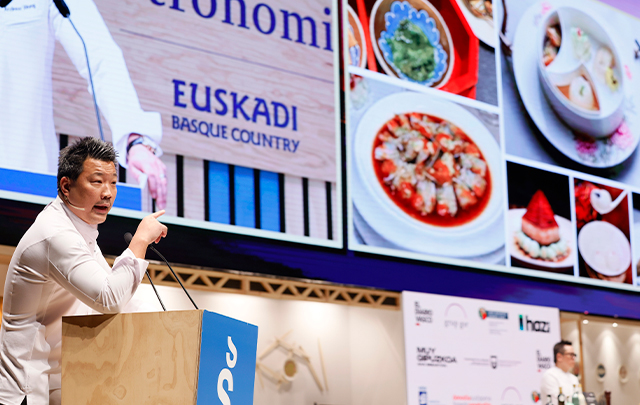
The British chef of Chinese descent argues for the uniqueness of a universal cuisine that is moving towards purity and minimalism.
If I dedicated my whole life to getting to know China, I would die in ignorance,' began chef Andrew Wong at Gastronomika, to emphasise how the sheer size of a country with 14 borders makes it impossible to get to know it in depth. Such a vast expanse, combined with the influence of neighbouring countries and the pace imposed by the West, means that Chinese cuisine lacks a single identity, "the term doesn't exist". In the north of the country, for example, they don't eat rice, they eat noodles,' he argues.
Andrew Wong, a Briton of Chinese descent, runs the A.Wong restaurant in London. When he first visited China, it was predominantly rural, but now it is one of the most advanced countries in the world. A frenetic growth, which the chef also pointed out as the reason why Chinese cuisine is constantly changing and impossible to fully understand. What he did highlight as a distinguishing feature is "its 3,000-year history, forged through trial and error, which means that techniques have been refined to near perfection," he warned. Techniques that, according to Andrew, are under-utilised in global gastronomy.
The tofu era and a shift towards purity
Having described the peculiarities of the present, Andrew ventured to predict the trends that will drive Chinese cuisine into the future. He began by talking about tofu, a food that is set to grow exponentially around the world, "driven by the development of biofuels, of which soya is one of the most important. As only 20% is harvested, other uses are being sought for the surplus, so we will see more and more products made from soya. Fortunately, we know this well in China," he argued.
And in terms of concept, the chef believes that Chinese cuisine, "which cannot be judged solely by the elaborations that reach Western countries", is moving towards a purer and more minimalist essence, with more emphasis on highlighting good produce. And as examples, he described the work of some of the best restaurants he has seen on his recent visits to the country, such as Yon Fu and its crab cut 18 ways; the Cantonese The Chairman and its exquisite braised eel ear; and Win, which also praises eel ear and sea cucumber, 'cooking products of exceptional quality in the simplest and most minimalist way'.
Finally, he showed us some of the dishes from his restaurant, where he combines his Asian heritage with his European training, such as dumplings and dim sum, "for which I have recovered ancient Chinese techniques", or the lovely quail eggs wrapped in egg yolk paste with wheat starch and butter, "which, when fried, open up in the shape of an Afro hairdo".

